Notebook
-
 Science & Society
Science & SocietyHere’s what game theory says about how to win in semifinals
Game theory informs competitors facing off in a semifinal whether to go all out or save energy for the final.
By Andrew Grant -
 Genetics
GeneticsA billion years of evolution doesn’t change some genes
Human genes can substitute for 47 percent of essential genes in baker’s yeast, new research shows.
-
 Animals
AnimalsPandas’ gut bacteria resemble carnivores’
Unlike other vegetarians, the bamboo eaters lack plant-digesting microbes.
By Meghan Rosen -
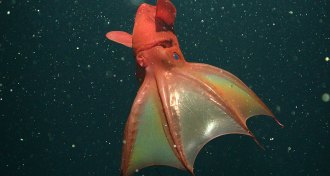 Animals
AnimalsVampire squid take mommy breaks
The vampire squid again defies its sensationalist name with a life in the slow lane.
By Susan Milius -
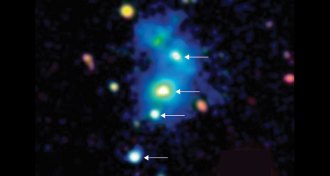 Astronomy
AstronomyFirst quasar quartet discovered
A quartet of quasars seen in the early universe may mark where a massive galaxy cluster is starting to form.
-
 Animals
AnimalsEarly research asked whether cats dream
Early research asked whether cats dream; researchers still don’t know definitively.
-
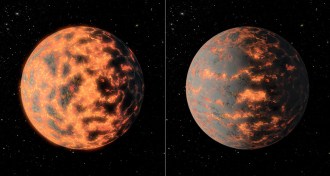 Astronomy
AstronomyErupting volcanoes may cause exoplanet’s temperature extremes
Temperatures fluctuate wildly on a nearby exoplanet, and volcanoes might be the culprit.
-
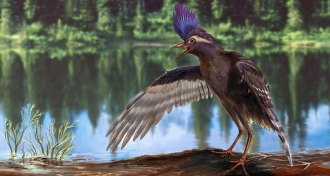 Paleontology
PaleontologyOldest known avian relative of today’s birds found in China
Fossil find suggests modern birds’ oldest avian relative lived about 6 million years before previous record holder.
By Meghan Rosen -
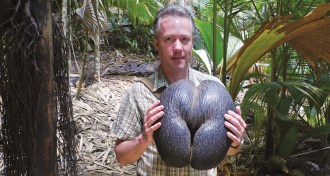 Plants
PlantsHow slow plants make ridiculous seeds
Coco de mer palms scrimp, save and take not quite forever creating the world’s largest seeds.
By Susan Milius -
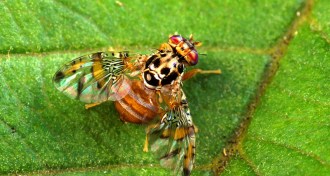 Plants
PlantsMedfly control methods were ready for pest’s influx
50 years ago, researchers prepared to greet Mediterranean fruit flies with sterile males.
-
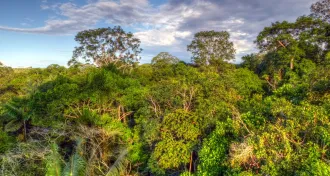 Ecosystems
EcosystemsJust 1 percent of Amazon’s trees hold half of its carbon
Roughly 1 percent of tree species in the Amazon rainforest account for half of the jungle’s carbon storage.
-
 Neuroscience
NeuroscienceBrain on display
In her online videos, Nancy Kanwisher goes where few other neuroscientists go.